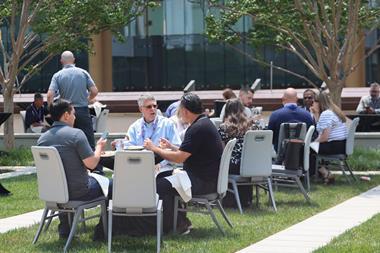UECC has added another dual-fuel LNG vessel to its network connecting northern Europe and the Mediterranean, as well as adding a third Turkish port in answer to demand for more sustainable finished vehicle services.
United European Car Carriers (UECC) has added a dual-fuel LNG pure car and truck carrier (PCTC) to its north-south Europe trading network along with an additional port call in Turkey at Yarímca. UECC vessels already calls at the Turkish ports of Efesan and Autoport. The company said the addition of the vessel and the port were made to meet growing demand for sustainable shipping in the European shortsea trade.

“The addition of the Blue Heritage will increase to seven the number of UECC vessels traversing this busy route, which means we will be able to offer a sailing frequency of 4.5 days from Turkey to Northern Europe – the highest in the market,” said UECC’s chief operations officer, Per Christian Mørk.
The Blue Heritage has capacity for 7,000 car equivalent units (CEUs) across 12 decks and is the sistership to the Blue Aspire. The vessel can also carry high and heavy (H&H) cargoes thanks to four of its 12 decks being hoistable.
Like its sistership the Blue Heritage has dual-fuel LNG engines that can also run on liquefied biomethane (LBM). Last month UECC reported that it had seen “a massive reduction in well-to-wake CO2 emissions in 2024” and that was largely in part because of its bunkering of LBM on LNG-fuelled vessels, all part of its Sail for Change decarbonisation initiative, which is drawing strong support from carmakers in Europe. OEM customers now include Toyota, Ford and JLR.
UECC’s European north-south service
| Port rotation | Vessels deployed |
|---|---|
|
Flushing, Zeebrugge, Cuxhaven, Vigo, Yarímca, Efesan, Autoport (returning to Flushing) |
3 |
|
Cuxhaven, Bremerhaven, Zeebrugge, Portbury, Vigo, Sagunto, Livorno, Piraeus, Autoport (returning to Cuxhaven) |
4 |
Emissions fell by more than 107,000 tonnes of CO2 last year, a significant 70% increase on a reduction of over 63,000 tonnes achieved in 2023, according to UECC. The vehicle logistics provider said it aims to boost emissions cuts by a further 50% this year to nearly 155,000 tonnes.
With seven vessels now covering 12 ports on the north-west route, UECC said it is stepping up both service regularity and environmental efficiency in line with increasing contractual volumes from both existing and new customers.








































No comments yet